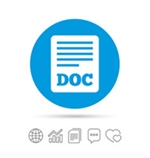INOVASI PROGRAM BANK SAMPAH MELALUI PEMBERDAYAAN MASYARAKAT SEBAGAI PROSES KOMUNIKASI PERUBAHAN SOSIAL
Abstract
Waste management is essentially needed by the community in Lebak Regency to reduce waste buildup. The concept of trash bank as a solution in order to change the paradigm of society in waste management is a new innovation for peoples in kabupaten lebak. Therefore in this research, the researcher want to explain and study the communication process carried out by the management of the Barangbang Garbage Bank and how to adopt the innovation of the garbage bank program by the community in East Muara Ciujung Village, Lebak Regency. This study uses descriptive qualitative research methods. The results showed that the communication process carried out by the management of the Sampang Barangbang Bank was more about installing communication channels using print media, spatial planning and face-to-face communication. The results of the research show that the communication process carried out by the Barangbang Garbage Bank management more emphasis on the communication channel stage through the use of print media, spatial planning and face-to-face communication.
Keywords: Adoption of Innovation, Waste Bank Programs, Community Empowerment, Communication Process
Full Text:
PDFReferences
Buku
Bungin, Burhan, (2008). Sosiologi Komunikasi, Jakarta: Kencana
Fahrudin, Adi. (2012). Pemberdayaan, Partisipasi dan Penguatan Kapasitas Masyarakat. Bandung: Humaniora.
Mardikanto, Totok. (2014). CSR (Corporate Social Responsibility) ( Tanggung jawab Sosial Korporasi). Bandung: Alfabeta.
Miles,M.B, Huberman,A.M, dan Saldana,J. (2014).Qualitative Data Analysis, A Methods Sourcebook,Edition 3. USA: Sage Publications. Terjemahan Tjetjep Rohindi Rohidi, UI-Press.
Nasution, Zulkarnaen, (2002). Komunikasi Pembangunan: Pengenalan teori dan Penerapannya. Jakarta: PT. RajaGrafindo Persada
Rogers, Everett M, (2003). Diffusion On Innovations. (5th ed). New York. Free Press
Satori, Djam’an, Komariah Aan, (2010). Metodologi Penelitian Kualitatif. Bandung: Alfabeta
Sulistyani, Ambar Teguh, (2004). Kemitraan dan Model-Model Pemberdayaan Masyarakat. Yogyakarta: Gava Media
Jurnal
Ahmad, Rizal, (2016). Difusi Inovasi dalam Meningkatkan Partisipasi Masyarakat akan Kelestarian Lingkungan. Jurnal Sosietas, 6(2).
Febriana,Kharisma Ayu & Setiawan, Yuliyanto Budi (2016). Komunikasi Dalam Difusi Inovasi Kerajinan Enceng Gondok Di Desa Tuntang, Kabupaten Semarang. Jurnal The Messenger,8(1) 17-26
I.Satriani, P. Muljono, R.W.E. Lumintang,(2011). Komunikasi Partisipatif Pada Program Pos Pemberdayaan Keluarga. Jurnal Komunikasi Pembangunan, 9(2), 17-27
Purwanto, (2019). Pengelolaan “Bank Sampah” Berbasis Masyarakat sebagai Alternatif Meningkatkan Ekonomi Warga RT 004/RW 09, Cikarang Utara–Bekasi. Academics in Action Journal,1(1) 27-37.
Sucahya, Media,& Surahman,Sigit (2017) . Difusi Inovasi Program Bank Sampah (Model Difusi Inovasi Pemberdayaan Masyarakat Dalam Pengelolaan Bank Sampah Alam Lestari Di Kota Serang Provinsi Banten). Jurnal Ilmu Komunikasi,8(1), 63-79
Laporan
Badan Pusat Statistik, (2018). Statistik Lingkungan Hidup Indonesia. Jakarta. BPS Indonesia
Deputi Pengelolaan Sampah Kementerian Lingkungan Hidup, (2012). Buku Profil Bank Sampah Indonesia Tahun 2012. Jakarta. KLH.
Rencana Pembangunan Jangka Menengah Daerah Kabupaten Lebak Tahun 2015. (2015). Lebak.
Shahreza, Mirza, (2018). Implementasi Teori Difusi Inovasi pada Gerakan Bank Sampah (2020 Februari 26). Diakses dari https://www.researchgate.net/publication/325959864
Undang-undang No. 18 Tahun 2008 Tentang Pengelolaan Sampah. Jakarta.
Surat Kabar Online
Fatah, Darwin. (2019). wow Indonesia produksi 64 juta ton sampah per tahun. (2019 November 3). Diakses dari https://indopos.co.id/read/2019/07/07/180601/wow-indonesia-produksi-64-juta-ton-sampah-per-tahun
DOI: https://doi.org/10.35308/source.v6i1.1795
Refbacks
- There are currently no refbacks.
SOURCE: Jurnal Ilmu Komunikasi indexed by:






Jurnal SOURCE is licensed under a Creative Commons Attribution-ShareAlike 4.0 International License.






